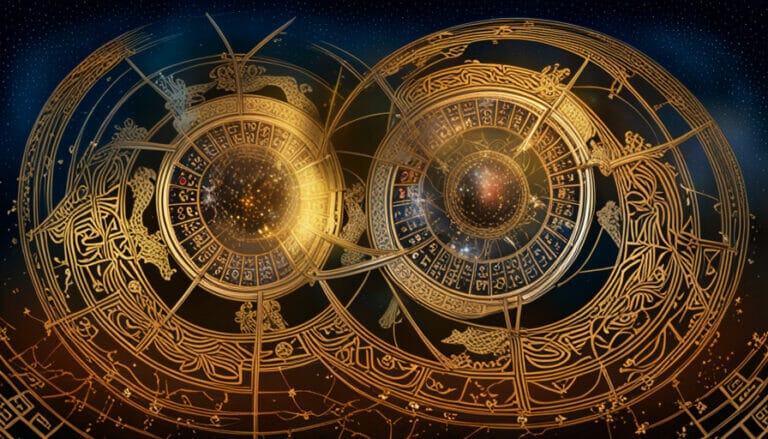What Is Jewish Numerology?
Have you ever wondered about the mystical significance of numbers in Jewish culture? Well, look no further, as this article explores the fascinating world of Jewish numerology.
Jewish numerology, also known as gematria, is a practice that assigns numerical values to Hebrew letters and words, aiming to unveil hidden meanings and connections within Jewish texts.
With origins dating back centuries, Jewish numerology has been an integral part of Jewish scholarship and spiritual exploration. By understanding the numerical values assigned to each letter, one gains insights into the symbolic and metaphorical aspects of Jewish texts. These numeric interpretations have profound significance in various aspects of Jewish culture, including religious rituals, religious texts, and even daily life.
In this article, we will delve into the origins of Jewish numerology, explore how the numerical values are understood, and examine its applications in Jewish culture. Additionally, we will provide examples of Jewish numerology and discuss the criticisms and debates surrounding this practice.
Get ready to uncover the hidden world of Jewish numerology and gain a deeper understanding of this esoteric tradition.
Key Takeaways
– Jewish numerology, also known as Gematria, is a practice that reveals hidden meanings in sacred texts by assigning numerical values to Hebrew letters and words.
– It has deep roots in Jewish tradition and helps believers gain a deeper understanding of their faith.
– Hebrew letters have specific numerical values representing concepts, and Gematria plays a significant role in religious practices.
– Different systems of Jewish numerology exist, such as traditional Hebrew and Greek-influenced, which uncover hidden meanings and connections in sacred texts.
Origins of Jewish Numerology
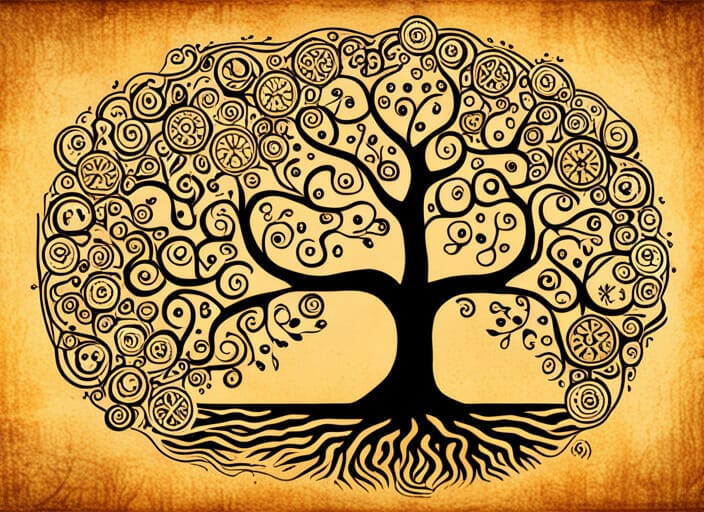
Let’s dive into the origins of Jewish numerology, shall we?
Numerical symbolism has been an integral part of Jewish culture for centuries, with its roots tracing back to ancient Jewish texts. These texts, such as the Bible and the Talmud, contain numerous instances where numbers hold significant meaning.
In Jewish numerology, each letter of the Hebrew alphabet also represents a specific numerical value. This system, known as gematria, assigns numerical values to words and phrases based on the sum of their individual letter values.
Through gematria, Jewish scholars have sought to uncover hidden meanings and connections within the texts, believing that these numerical values hold profound insights into the spiritual realm.
Understanding the numerical values assigned to Hebrew letters is essential to grasping the intricate layers of Jewish numerology.
Understanding the Numerical Values
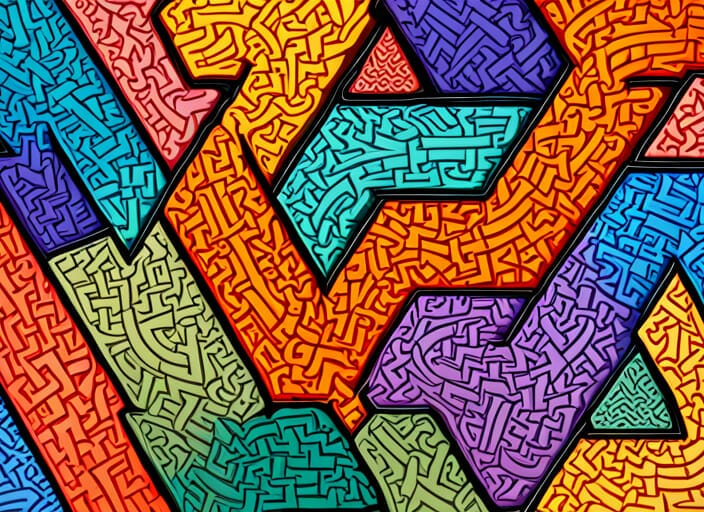
Exploring the significance behind numbers can be a thought-provoking journey that unveils hidden meanings. When it comes to Jewish numerology, interpreting numbers is an essential part of understanding mystical traditions.
In this system, each Hebrew letter corresponds to a specific numerical value. This allows for the interpretation of words and phrases based on their numerical sum.
For example, the number 18, which represents the Hebrew word ‘chai’ meaning ‘life,’ is considered a symbol of good luck and blessings. Similarly, the number 613, which represents the number of commandments in the Torah, holds great importance in Jewish religious practices.
Understanding the numerical values in Jewish numerology provides insight into the deeper meanings behind words and concepts in Jewish culture and spirituality. It sheds light on the rich symbolism and significance that numbers hold in Jewish traditions.
Significance in Jewish Culture
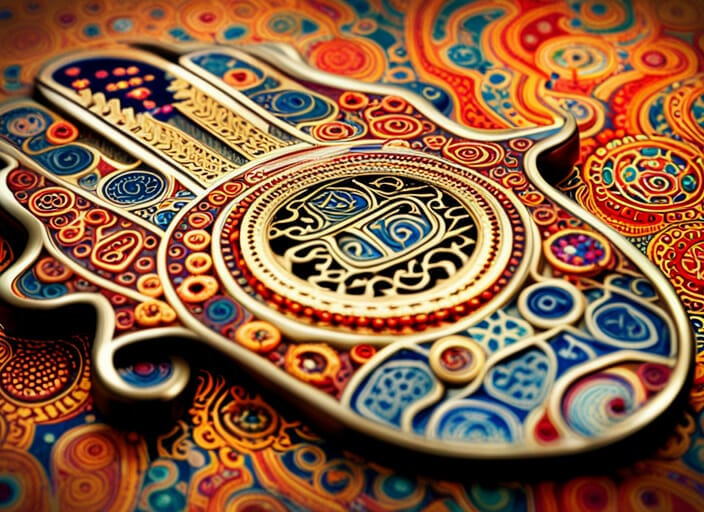
Delving into the significance of numerical values in Jewish culture allows you to uncover the deeper layers of meaning and symbolism embedded within words and concepts. Numerology plays a crucial role in Jewish tradition, as it provides a framework for interpretation and understanding. Jewish scholars have developed various interpretation methods to make sense of the numerical values associated with Hebrew words and phrases. These methods include gematria, which assigns numerical values to each letter in the Hebrew alphabet, and notarikon, which involves creating new words or phrases from the initial letters of a word or expression. By applying these techniques, Jewish people can find hidden connections and insights that go beyond the surface level of understanding. This cultural symbolism adds richness and depth to Jewish texts, rituals, and traditions. Understanding the significance of numerical values in Jewish culture sets the stage for exploring their applications in Jewish numerology, where these insights are put into practice.
Applications in Jewish Numerology
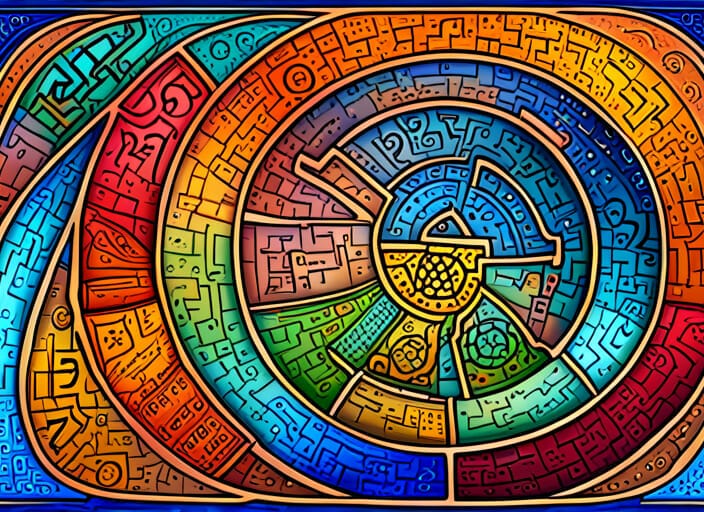
By applying these techniques, you can uncover hidden connections and gain profound insights, enhancing your understanding and interpretation of Jewish texts, rituals, and traditions. Jewish numerology has practical uses in various aspects of Jewish life. Here are three examples of how it is applied:
1. Gematria: This method assigns numerical values to Hebrew letters and calculates the numerical value of words or phrases. By finding words with the same numerical value, you can discover connections and deeper meanings within the text.
2. Numerical patterns: Jewish numerology looks for recurring numerical patterns in texts, such as the number seven representing completion or the number forty symbolizing a period of transformation or purification.
3. Modern interpretations: Jewish numerology is not limited to ancient texts. It can be applied to contemporary events and situations, providing insights and guidance in navigating modern challenges.
These practical applications of Jewish numerology demonstrate its relevance and adaptability in various contexts.
Moving on to examples of Jewish numerology…
Examples of Jewish Numerology
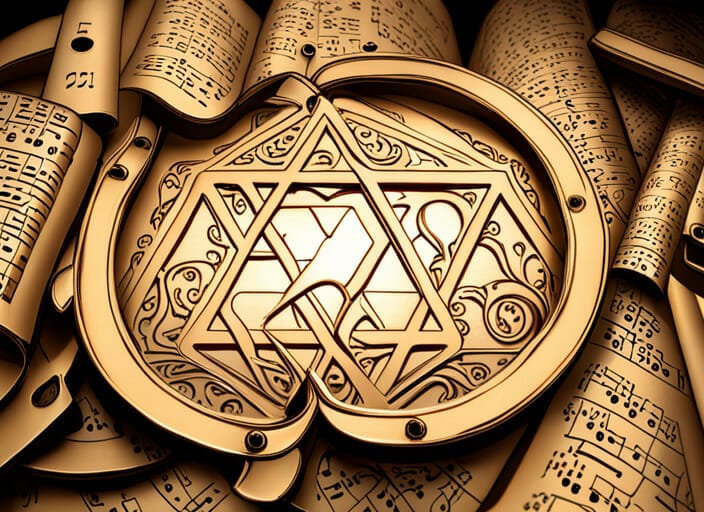
Gematria uncovers hidden connections and deeper meanings within Jewish texts by assigning numerical values to Hebrew letters and calculating the numerical value of words or phrases. Through this practice, Jewish numerology reveals symbolic meanings and offers mystical interpretations. Let’s explore some examples of Jewish numerology:
| Hebrew Letter | Numerical Value |
|---|---|
| Aleph | 1 |
| Bet | 2 |
| Gimel | 3 |
| Dalet | 4 |
In this table, you can see the numerical values assigned to the Hebrew letters. By calculating the numerical value of a word or phrase, Jewish numerologists can derive further insights and connections. For example, the word “chai,” which means “life” in Hebrew, has a numerical value of 18, symbolizing good luck and blessings.
This glimpse into Jewish numerology showcases its intricate nature and its ability to reveal hidden meanings. However, like any practice, it has faced criticisms and debates. [Transition into the subsequent section about ‘criticisms and debates.’]
Criticisms and Debates

When discussing the criticisms and debates surrounding Jewish numerology, it is important to consider the skepticism from rationalist scholars who approach the subject with a critical lens. These scholars question the validity and reliability of the numerical interpretations, demanding empirical evidence and logical reasoning.
Additionally, the diverse interpretations and disagreements among Jewish scholars also contribute to the ongoing debates, as different individuals and communities have varying understandings and applications of Jewish numerology.
Skepticism from rationalist scholars
Don’t let rationalist scholars dismiss the skepticism surrounding Jewish numerology. While it is true that some rationalist scholars question the validity of Jewish numerology, it is important to consider the historical context and its influence on religious practices. Jewish numerology, also known as gematria, has deep roots in Jewish tradition and is believed to reveal hidden meanings within sacred texts. By assigning numerical values to Hebrew letters and words, believers can uncover hidden messages and gain a deeper understanding of their faith.
To illustrate the significance of Jewish numerology, consider the following table:
| Hebrew Letter | Numerical Value | Meaning |
| Aleph | 1 | Unity |
| Bet | 2 | Duality |
| Gimel | 3 | Divine Intervention |
This table demonstrates how each letter holds a specific numerical value and represents a deeper concept. Such interpretations are not easily dismissed, as they have played a significant role in Jewish religious practices throughout history.
Transitioning into the subsequent section about diverse interpretations and disagreements, it becomes clear that Jewish numerology is a subject of ongoing debate within the Jewish community.
Diverse interpretations and disagreements
Diverse interpretations and disagreements among scholars are not uncommon in the realm of Jewish numerology. Like any other mystical tradition, Jewish numerology is subject to a tapestry of meanings and conflicting viewpoints. The lack of historical evidence and the passage of time have only contributed to the controversies surrounding its interpretation.
To delve deeper into the world of Jewish numerology, it is important to consider several key aspects. One such aspect is Gematria, the practice of assigning numerical values to Hebrew letters. This practice often leads to hidden meanings and connections within sacred texts. Additionally, there are different systems of Jewish numerology, including the traditional Hebrew system and the Greek-influenced system. Numbers in Jewish numerology often carry symbolic meanings, representing spiritual concepts and cosmic forces. Scholars employ various interpretation methods, such as textual analysis, historical context, and spiritual intuition, to uncover the hidden wisdom within numerical patterns.
The interpretive controversies and historical evidence surrounding Jewish numerology continue to fuel scholarly debates. As a result, the study of Jewish numerology remains a fascinating field for those seeking to unravel its mysteries.
Frequently Asked Questions
How does Jewish Numerology differ from other forms of numerology, such as Pythagorean Numerology?
Jewish numerology, unlike Pythagorean numerology, emphasizes the significance of numbers in Jewish beliefs and traditions. A comparison of techniques and beliefs between Jewish numerology and Chaldean numerology reveals unique approaches to interpreting numbers. Additionally, the number 18 holds special importance in Jewish numerology.
Are there any specific numbers in Jewish Numerology that hold more significance than others?
In Jewish numerology, certain numbers hold great significance. For example, the number 18, known as “Chai,” symbolizes life and good luck. The number 7 represents spiritual completeness, while 40 symbolizes transformation and growth. Interpretation of numbers varies based on context and personal beliefs.
Can Jewish Numerology be used to predict future events or outcomes?
The predictive power of Jewish numerology is a subject of a validity debate. While some believe that it can be used to predict future events or outcomes, others argue that it lacks empirical evidence to support its claims.
Are there any rituals or practices associated with Jewish Numerology?
Rituals and practices play a significant role in Jewish numerology. Numbers hold symbolic meaning and are used in rituals like the counting of the Omer. The significance of numbers is studied to gain insight and connect with the divine.
Is Jewish Numerology widely accepted and practiced within the Jewish community, or is it more of a niche belief system?
Jewish numerology, also known as gematria, has a long history and origin in Jewish mysticism. While it is not widely accepted or practiced within the Jewish community, it holds cultural significance and impact for those who do engage with it.
Conclusion
In conclusion, Jewish numerology holds a profound significance in Jewish culture. It serves as a guide and tool for spiritual understanding. By assigning numerical values to Hebrew letters and words, practitioners can unlock hidden meanings and divine messages.
While critics may debate its validity, the beauty of Jewish numerology lies in its allegorical nature. It allows individuals to delve into the depths of their faith and connect with the divine in a unique and profound way.
As with any ancient practice, it is important to approach Jewish numerology with an open mind and a willingness to explore the mysteries that lie within.


